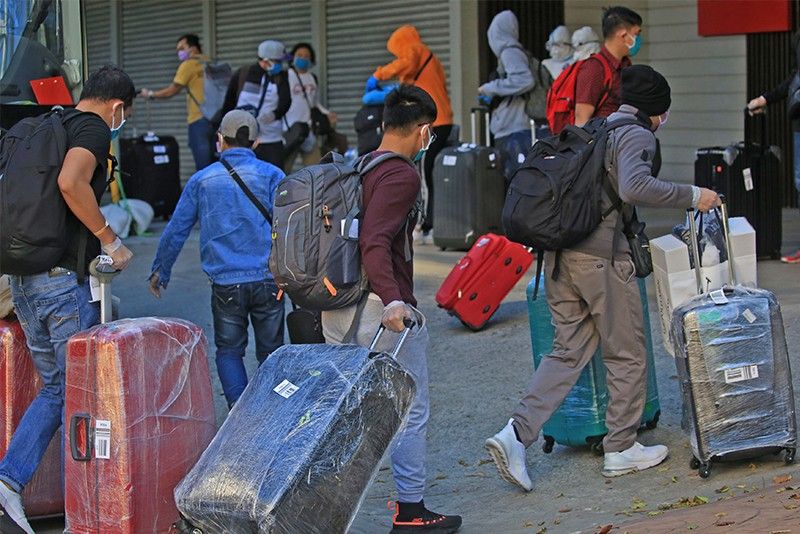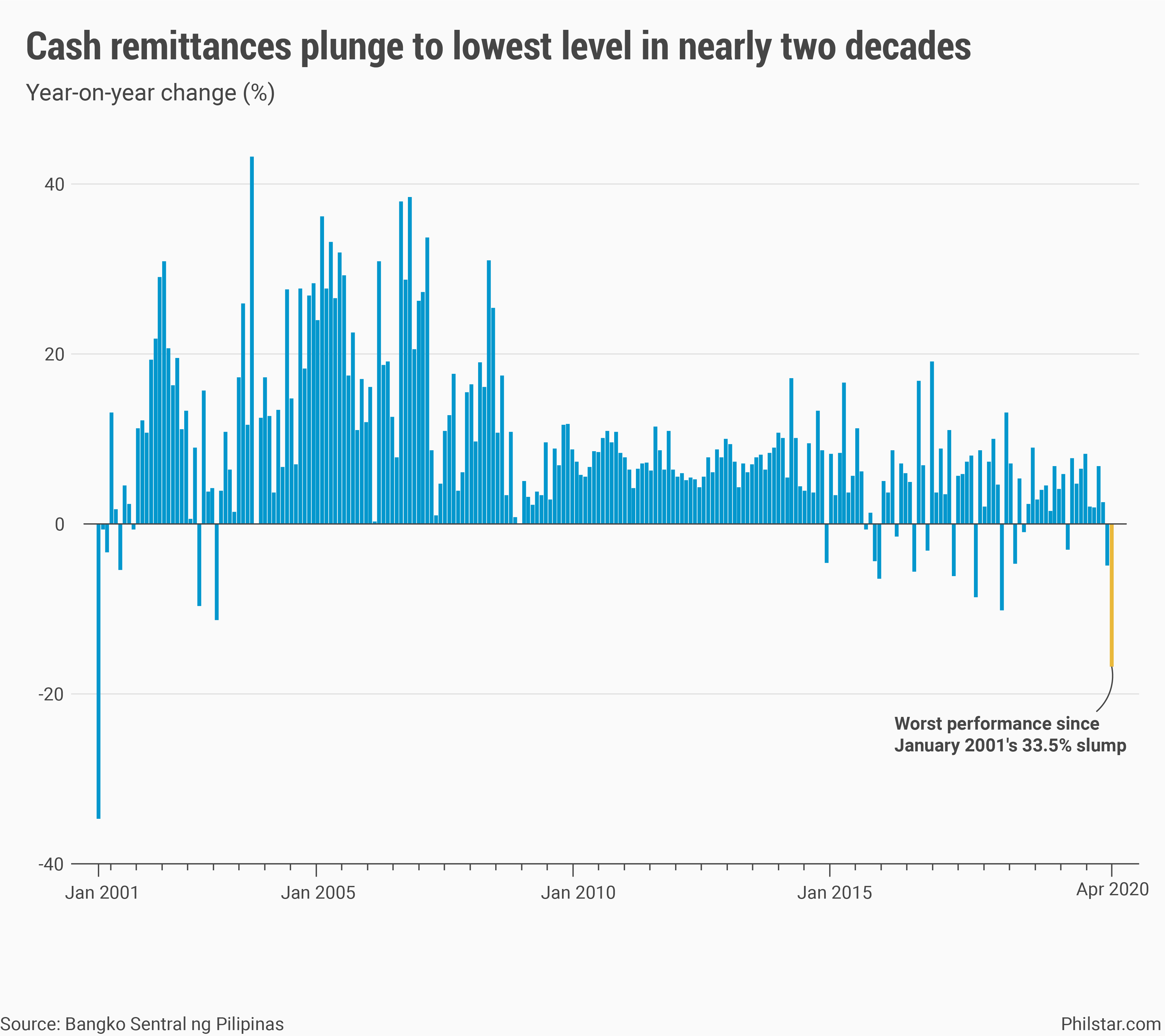Coronavirus sinks Philippines' remittance lifeline to 19-year low

MANILA, Philippines — Money sent home by Filipinos abroad sank in April, recording their weakest performance in more than 19 years, a repercussion of massive job losses among migrant workers that are only expected to worsen as the pandemic’s wrath swept the globe.
Cash remittances coursed through banks sagged 16.2% year-on-year to $2.05 billion in April, the steepest drop since inflows slumped 33.5% in January 2001, the Bangko Sentral ng Pilipinas (BSP) reported late Wednesday evening.
The scale of decline was enough to turn cash remittances to the negative territory for the first four months. Inflows hit $9.45 billion from January to April, down 3% annually.
BSP projects remittances, a key driver of consumption and economic activity, will contract 5% this year.

“The decline in cash remittances was attributed to the unexpected repatriation of some OFs (overseas Filipinos) deployed in countries heavily affected by the pandemic, and temporary closure/limited operating hours of some banks and institutions from both the sending and receiving ends that provide money transfer services during the lockdown,” the central bank said in a statement.
Coronavirus disease-2019 (COVID-19) is proving to be a formidable challenge to what was long seen as resilient remittance inflows. For one, 82,057 migrant workers that send this money home had been sent home jobless as of July 13, while another 117,000 remained stranded in their host countries.
As workers already abroad return home, deployment of new ones have also nearly halted. In April, only 47 land-based overseas Filipino workers were deployed, a far cry from 30,592 same period a year ago, data from the Philippine Overseas Employment Administration showed.
Rehires also dropped to just 667, while seafarers only numbered to 392 in the same month.
“Definitely we expect lower remittances in the coming months,” said Jeremaiah Opiniano, executive director at Institute for Migration and Development Issues.
“Never has a crisis like this brought to the fore the mental challenges of migrants that are strongly linked to their financial vulnerabilities. Not to mention constraints to physical mobility,” he added.
Middle East, Europe inflows down; US’ up
By location, remittances plummeted the most in Europe by 15.2% year-on-year in the first four months. Broken down further by territory, Filipinos in Germany sent 32.3% less money home, while those in France remitted 21.2% lower versus a year ago.
Remittances from the Middle East, where 57% of Filipino workers were deployed as of 2017, fell 13.9% year-on-year from January to April. Inflows from Qatar rose 5.6%, but they were not enough to offset a 23.2% drop recorded in Saudi Arabia.
Remittances also plunged 24.6% year-on-year in Kuwait, 17.8% in United Arab Emirates and 5.5% in Israel. Elsewhere, cash from Hong Kong dipped 0.5% from year-ago levels.
“Not surprised with the (Middle East)…The pandemic also induced fluctuating global oil prices and the corresponding recessions or economic slowdowns… Europe, of course, bore the brunt of the early spread of the (virus),” Opiniano said.
On the flip side, remittances from the US, which accounted for 39.6% of inflows, remained on an uptrend, rising 7.1% year-on-year as of April.
“The US is quite surprising. This may imply Pinoys there are beginning to draw from their savings. As a mitigating measure, the US gave unemployed workers unemployment insurance. But for how long will this drawing of savings last for them?” Opiniano said.
- Latest
- Trending




























